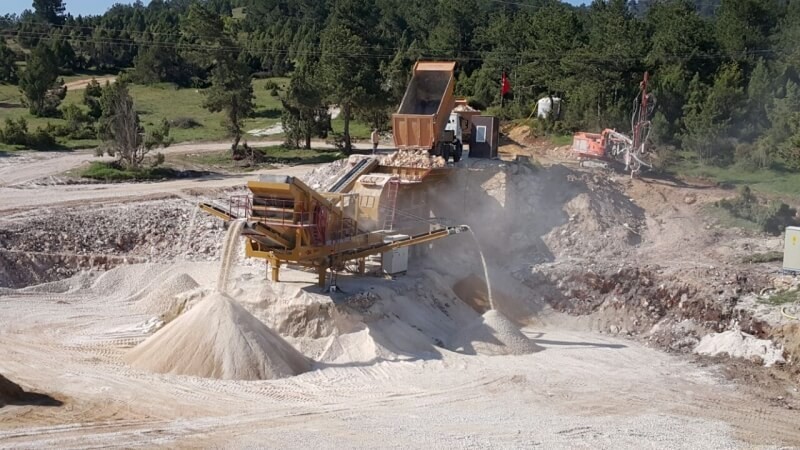Crushing, grinding, and screening plants are essential equipment and systems in many industries, including construction, mining, chemicals, and more. These plants process rocks and minerals to achieve the desired particle size and quality. When properly chosen, crushing, grinding, and screening plants can operate efficiently and have a long lifespan. However, there are several important factors to consider when purchasing these plants. Each factor plays a significant role in the efficiency, cost, and labor involved.
1. Identifying Needs and Project Planning
The first step before deciding to purchase a plant is to clearly identify your needs. Factors such as the type of material to be processed, processing capacity, particle size requirements, and operating hours should be considered. Based on these factors, the technical specifications of the plant should be determined. Additionally, project planning should be carried out, detailing the installation site, infrastructure requirements, and operating conditions.
2. Technical Specifications and Efficiency
The technical specifications of the plant you are considering to purchase will directly impact product quality and processing time. Therefore, the most suitable technical solutions should be considered to increase plant efficiency. The capacity, energy consumption, and durability of the crushing machines, grinding systems, and screening equipment should be thoroughly examined. Additionally, long-term factors such as energy efficiency, maintenance requirements, and service life should be taken into account.
3. Cost and Return on Investment
Purchasing a plant generally requires a large investment. Therefore, the cost of the plant and the return on investment must be carefully calculated. In addition to the initial purchase cost, operating costs, maintenance expenses, and energy consumption should also be considered. The potential revenue from efficient operation of the plant should also be evaluated. The Total Cost of Ownership (TCO) should be calculated, and the Return on Investment (ROI) should be assessed.
4. Safety and Environmental Standards
It is crucial that the crushing, grinding, and screening plants comply with safety and environmental standards. Safety measures in the production process, compliance with occupational health and safety regulations, and environmental protection are essential factors to consider. The impact of dust, noise, and vibrations during plant operation should be minimized. Moreover, the use of environmentally friendly technologies and recycling systems will increase the plant's environmental sensitivity.
5. Spare Parts and Service Support
To ensure the plant operates efficiently and has a long lifespan, spare parts availability and service support are vital. The quality and continuity of spare parts and maintenance services provided by the manufacturer or supplier of the plant will have a significant impact on the plant's downtime and operational continuity. The warranty period and warranty terms of the plant should also be carefully examined.
6. Reliability of the Seller and Manufacturer
Finally, another important factor to consider when purchasing a plant is the reliability of the seller or manufacturer. The company's experience in the industry, references, customer service, and after-sales support play a major role in the quality and efficiency of the purchased plant. The company's past successes and customer satisfaction can provide crucial insights into how safe your investment is.
Key Points to Consider When Buying a Crushing, Grinding, and Screening Plant:
-
Identifying needs and project planning
-
Technical specifications and efficiency
-
Cost and return on investment
-
Safety and environmental standards
-
Spare parts and service support
-
Reliability of the seller and manufacturer
In Summary, when purchasing a crushing, grinding, and screening plant, it is crucial to take these factors into account to make the right choice. The right plant can increase efficiency and provide significant long-term gains, whereas the wrong choice can lead to high costs and loss of labor. Therefore, careful analysis at every stage is necessary to ensure that the most suitable plant is purchased.
 English
English
 Le français
Le français
 Türkçe
Türkçe

